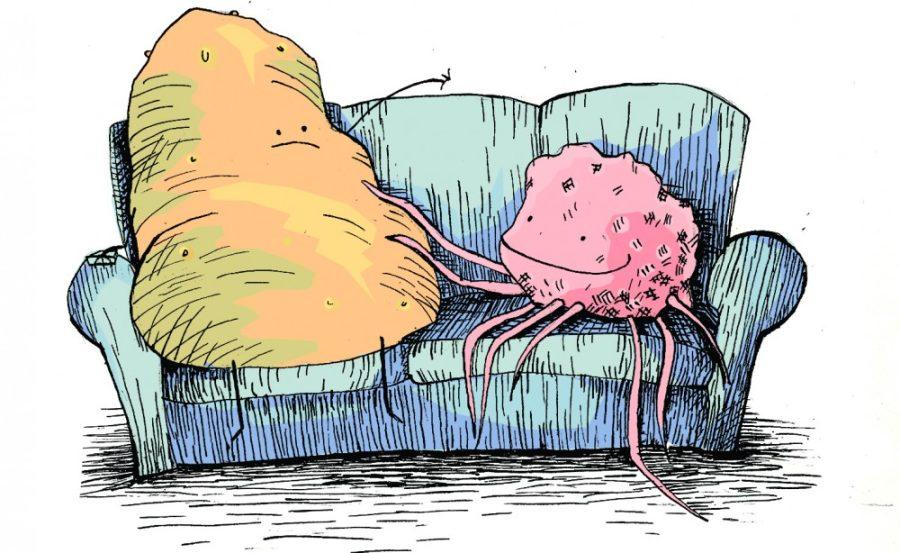People normally don’t think of their health while watching movies, sitting down at a restaurant, or doing homework for a couple hours, but these activities could be putting people at risk for cancer.
According to the National Center for Health Statistics, sedentary activity contributes to 49,000 cases of breast cancer and 43,000 cases of colon cancer every year.
While cancer is typically associated with older people, even college students need to be conscious of their physical activity.
“If you’re a college student, what you do now is going to impact what happens to you later in your life,” said Alice Bender, a registered dietitian for the American Institute for Cancer Research.
Arielle Allen, a pre-family studies sophomore, said she was physically active for the first few weeks of school but isn’t as devoted now. Allen added that she thinks this is a common trend among college students.
“It’s very difficult to work out if you’re not working out for a reason,” said Beverley Makhubele, a pre-computer science sophomore. “I walk around a lot because I’m on campus and I’m busy.”
But it’s not just about being active, it’s also about not being inactive, said Dr. Cynthia Thomson, an associate professor of nutritional sciences at the UA. Even those who work out for 30 minutes each day shouldn’t be sedentary for the remainder of the day.
“You can be kind of that active group, but you may not benefit from that activity if the rest of the time you’re sitting on your butt,” Thomson said. “That sitting time, that sedentary time, is as much of a risk factor for cancer and other chronic diseases than the activity part is protective.”
At the annual American Institute for Cancer Research conference on Thursday and Friday, epidemiologist Dr. Christine Friedenreich talked about biomarkers or potential cancer-risk indicators, which include inflammation, sex hormone levels and insulin resistance, Bender said.
“All of those are very positive things that happen when we’re physically active,” she said.
Friedenreich found that the risks went down for people who were physically active, Bender said.
Bender said another doctor, Neville Owen, found that when people sit longer, they have increased levels of insulin resistance, sex hormone levels and inflammation in the body. By breaking up sedentary behavior throughout the day, it can help lower the indicators, she added.
“When you exercise, you’re less insulin resistant,” Thomson said. “So you tend to have lower levels of circulating insulin in response to eating.”
She added that when this happens it helps prevent the growth of tumors when excess insulin is present.
One of the top risk factors for cancer is age, Thomson said, and as a person ages, they have less muscle mass. Inside those muscles, there’s also more fat accumulation. But regardless of age, people should stay active so they don’t have the fat muscle mass, she added.
“So when you’re inactive a lot of the time, it increases what we call intramuscular fat,” Thomson said.
In addition, people shouldn’t sit for longer than 60 minutes and should stand up at least once every hour and take a one to two minute break, Bender said. On average, people are sedentary for nine to 10 hours a day, assuming a 16-hour waking day, she added.
Makhubele said she tries to stretch out or get up every 30 minutes while she studies. If she has a heavier workload, she gets up every hour. She said she has also been trying to use a timer to schedule break times.
For those in residence halls, they can walk down the hall and talk to people instead of using Facebook or email, Bender said.
“It’s really important that we send the message to people that it’s not just about meeting those activity guidelines,” Thomson said. “It’s also about making sure that you look at what’s going on with your free time where you’re not exercising.”









